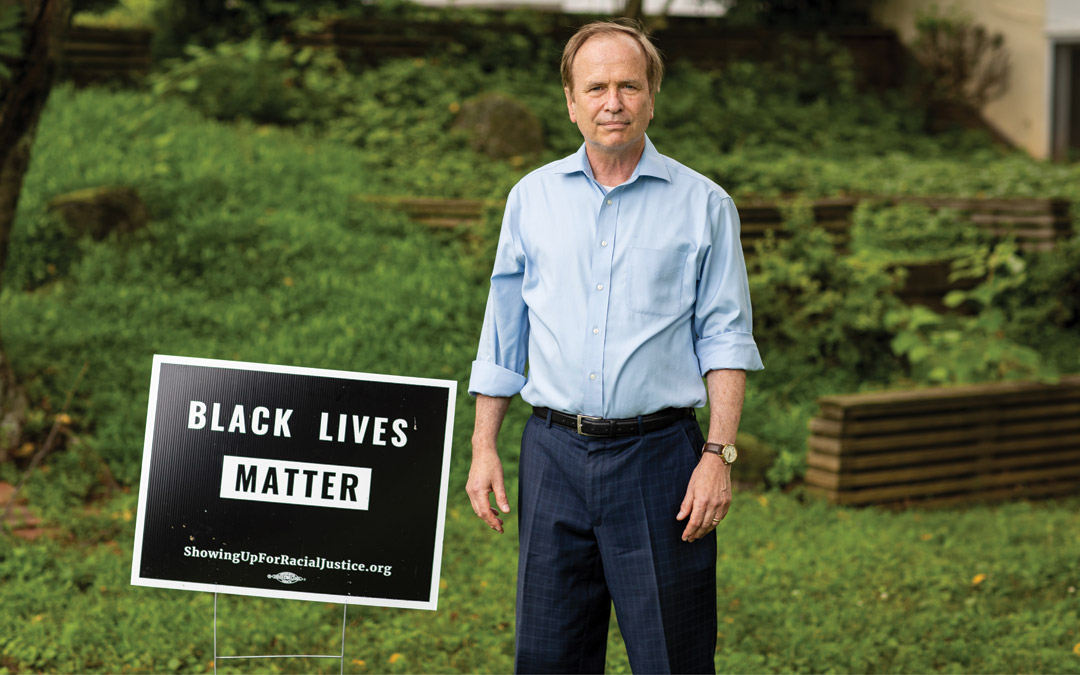I thought I knew a lot about race and America.
Growing up, I attended public schools during the brief window when they were truly integrated. I frequently visited my father, a psychologist at a Veterans Administration outpatient clinic, at his office, and he’d always introduce me to his patients who came from all backgrounds. I was steeped in the history of the Civil War, Reconstruction and the civil rights movement.
But when I changed careers and went into the nonprofit world, I realized I didn’t know that much. While I knew that racial injustice persisted, what I hadn’t heard were personal stories of its impact.
All of that changed when I became executive director in 1993 of Civic Works, a Baltimore nonprofit that engages mostly minority youth in community service and training activities.
The first month, during a meeting with about 20 of our participants, someone asked, “How many have a family member or friend who’s been shot?” Most in the group raised their hands. For those who’d dropped out of school, when asked why, participants said they had to earn money to support their family, or their school seemed uninterested in whether they stayed or dropped out.
Over the years, I’ve continued to hear stories that reflect the barriers of a system that is stacked against Black people. And during the unrest stemming from Freddie Gray’s death in 2015 and, most recently, George Floyd’s murder, I’ve listened as many staff reflect on the discrimination that they as African-Americans have experienced, be it unjust barriers or daily indignities.
So I’ve made progress in my understanding of how people of color face daily injustices. Yet, I’ll never fully understand, since I don’t have to worry about the police picking me up off the street, claiming I looked like someone who committed a crime. I don’t have to worry about someone calling the police when a family member rides a bicycle. And I don’t need to be worried about whether my kids will be treated unfairly in school because of their race.
As my colleague Del. Tony Bridges (D-41st) recently wrote in a Sun op-ed, “I have yet to watch the video [of George Floyd’s death], but I know what happened. I don’t want to hear apologies or laments that people understand my pain. Unless you are a black man in America, who has lived through years of seeing police violence in his community or watched neighborhoods lose hope because of very intentional disadvantages, I can promise you that you have no idea how I feel.”
So we must not just speak out against racial discrimination. We must act by working to provide solutions to the discrimination that Black people face. And it is especially important that we as Jews be involved in this effort.
First, our religion commands us to. When we say we are commanded to perform acts of tikkun olam, repairing the world, there is no bigger tear in this country’s moral fabric than the history of racism.
Second, we have been there. We know of the strident anti-Semitism that has existed in America and the racist dogma that led to concentration camps in Europe. With that knowledge, we cannot stand silent as fellow citizens suffer injustices based on their race. And as this country experiences a rise in anti-Semitic attacks, we all benefit from efforts to build a more just, tolerant society.
As for me, I am encouraged by the presence of so many young people at the rallies and protests that have followed George Floyd’s death. Perhaps our youth will help build a country that is fairer and more just. But in the meantime, I believe we must teach them all we can about the history of racial injustice.
As a legislator, I’ve advocated for changes in school curriculum when it’s clear that our youth needed better instruction on key issues. These have been on topics ranging from financial literacy to the centrality of slavery to the Civil War.
Just last year, when legislation to strengthen public school instruction on the Holocaust failed, I suggested to the Baltimore Jewish Council that they launch an effort to persuade the Maryland Department of Education through administrative action. That led to a letter signed by 79 legislators urging MSDE to enhance the state’s guidelines and curriculum standards with respect to education about the Holocaust. That letter helped prompt MSDE to agree to make these much-needed changes.
To me, the push for racial justice has exposed another gap in the state’s education curriculum: while students learn about the slave trade, Jim Crow laws and the civil rights movement, they do not learn about the systemic legacy of slavery in our state and country. Our students need to learn more about inequities in education, criminal justice and health care that persist to this day.
Changes in police practices are critically important, and the legislature will be considering those changes next session. At the same time, students need to learn about racial injustice in today’s society. I did not really understand what it means to be Black in America when I graduated from high school or college, but we can ensure that future generations do.
A Democrat, Dana M. Stein is a member of the Maryland House of Delegates representing the 11th District.





